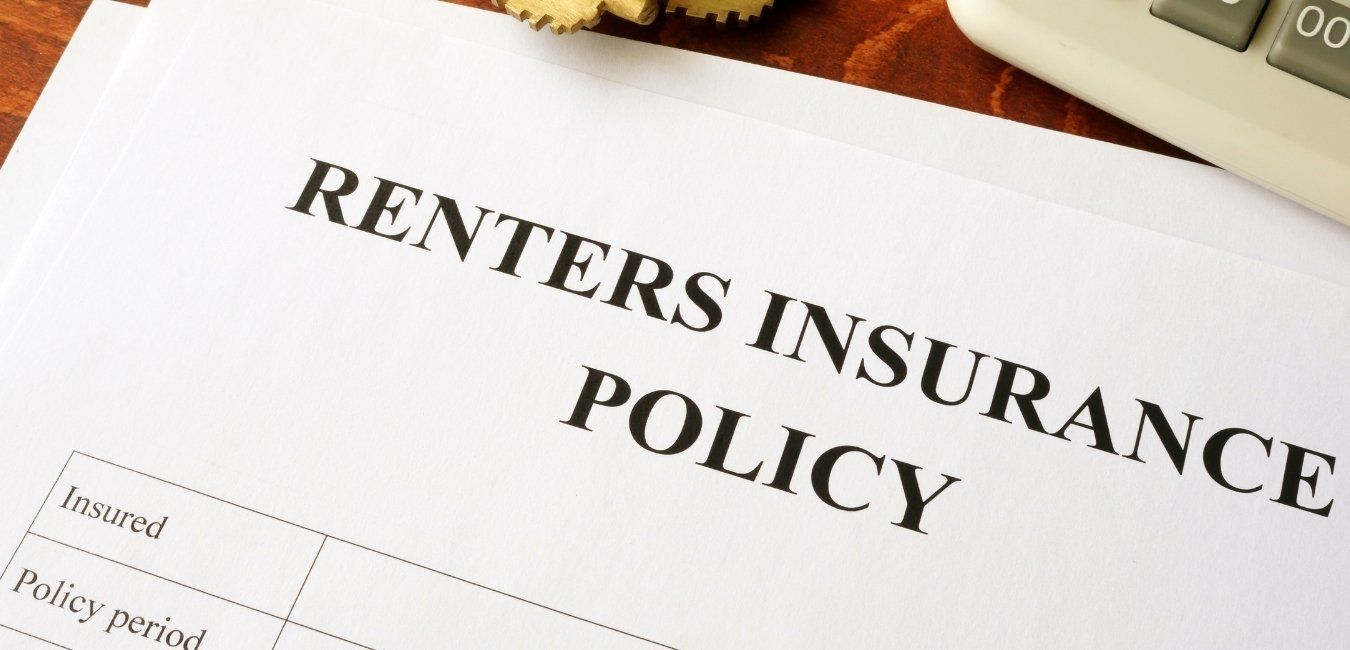What is Renter's Insurance?

When you move into a rental property, you can assume that the owner maintains a homeowner's insurance policy. You may also assume that policy will cover your personal belongings in the case of a fire, flood, tornado, robbery, or another unfortunate incident. Unfortunately, that’s not the case in most rental situations.
Your landlord’s homeowner’s insurance is designed to protect the property in which you live. It may help your landlord repair the home and surrounding property after a covered incident occurs. Still, it won’t likely do much to compensate you for lost furniture, appliances, and other belongings.
That’s where renters insurance comes into play, and it’s more important than you may realize.
To help you understand what renters insurance is and whether it’s worth the investment, we put together a quick guide. You can use this information to make critical decisions to protect yourself as a renter.
What is Renter's Insurance?
Renters insurance is a policy that protects personal belongings kept inside of a rental property. You can secure a policy for apartments, private homes, manufactured homes, and other types of property that you rent from a private landlord or property management company.
Your landlord should carry insurance that covers the actual home and surrounding property that you rent. Your renter’s policy will cover the items that you purchase and bring into the property as personal items. We’ll talk more about what a renters insurance policy does and doesn’t cover in a moment.
Types of Renter's Insurance
There are two types of renters insurance available today:
- Property Replacement Cost (RCV) – Covers the cost of repairing or replacing lost or damaged property at current prices for similar or similar items. Depreciation of items isn’t considered. You will receive the full amount required to replace each item at today’s prices.
- Actual Cost Value (ACV) – Covers the cost to replace lost or damaged property at the depreciated rate. The item's original value when brand new is considered, along with the property's age, to determine how much you're entitled to receive for compensation on your claim. The current replacement value isn’t considered.
Many insurance companies have standard ACV policies, but you can often upgrade to RCV for a higher monthly or yearly payment. If you need to file a claim, you may receive more back for lost or damaged items at the full replacement value rate. To determine if it’s worth paying more for a replacement cost renters insurance policy, consider the following factors:
- How much more will RCV cost you annually over a similar ACV policy?
- What would it cost to replace your property at today’s rates?
- What is a reasonable depreciated value of your property?
By estimating those figures, you can determine if you might get substantially more back with an RCV policy. Keep in mind that your items will continue to depreciate each year you maintain your renter's insurance policy without filing a claim. If you regularly update your furniture, appliances, and other property, you may find a replacement cost policy worth the investment.
Is Renter's Insurance Required?
Renter's insurance isn't legally required by the state or federal government, so you aren't legally bound to maintain a policy if you rent. Many landlords and property management companies require all renters to secure insurance, so you may need to comply if you want to live in certain properties.
If you’re planning to rent soon and are trying to estimate your move-in costs, it’s best to assume you will need to secure a renters insurance policy. That ensures you’re prepared for all move-in expenses if your preferred property does require coverage for all tenants.
What Does Renter's Insurance Cover?
Renters insurance covers replacing or repairing your personal belongings after a "covered peril." Those perils are unexpected events that you can’t predict or prevent and that leave you no option to save your belongings. For instance, the following are common covered perils for a renters insurance policy:
- Smoke damage
- Wind damage
- Hail damage
- Explosions
- Vandalism
- Theft
- Fallen objects
- Snow damage
- Ice damage
Floods and earthquakes are often not covered by the renter's insurance. Your policy may have other exclusions, so it's important to read the details of each policy you consider.
When you secure a renters insurance policy, you share details of the property in your rental unit and their estimated or actual value. If one of the covered perils occurs, you can file a claim to receive compensation for the repair or replacement of those items, according to the terms of the policy. Those terms go back to the policy type we discussed in more detail above.
There are four types of coverage that you may have with a renter’s policy:
- Personal Property Damage – Covers most, if not all, of your personal belongings, including furniture, clothing, electronics, jewelry, artwork, and sporting goods. Your policy should also cover any appliances that you own personally. Their homeowner's insurance policy most likely covers appliances owned by the property owner.
- Personal Liability – Covers liability costs if you’re blamed for an injury or damage to someone else’s property that occurs in your rental property.
- Medical Expenses – Covers medical bills for an injured guest while in your rental property.
- Other Expenses – This covers the cost of hotel rooms, food, and other expenses that may come into play when you cannot remain in the rental property after a covered peril. For instance, if you're forced to leave the property while it's repaired after a fire.
Not all renter's policies include all of these coverage options. Each policy has its maximum coverage limit for each coverage included, so make sure you compare like terms when considering rates.
What Does Renter's Insurance Not Cover?
Your renter's insurance won't cover items damaged in an event not covered by the policy. That's why it's important to understand what falls within your policy's covered perils before selecting a policy. Your policy will also cover up to the maximum reimbursement amount, so you may not get the full value of your items if it exceeds your policy’s max.
The renter's insurance won't cover any permanent structural part, including damage to stairways, walls, and other parts of the actual home or apartment. Some policies may also consider permanent appliances like stoves and refrigerators permanent fixtures. You may need to cover those items if you bring your own appliances into a rental unit.
Your policy will only cover items owned by the policy owner. That excludes property owned by roommates who share your residence or friends and relatives who store items in your rental unit.
In most cases, anything you keep outside of your rental unit isn’t covered. That may include outside furniture.
Conclusion: Is Renter's Insurance Worth It?
If you can't afford to replace everything inside your rental home at one time, then renters insurance is likely worth the investment. The thing about covered perils is you never know when they will hit your home. Your landlord has protected the structure in which you live, but it’s your responsibility to protect your personal belongings.
GM Holdings LLC
Office Hours





